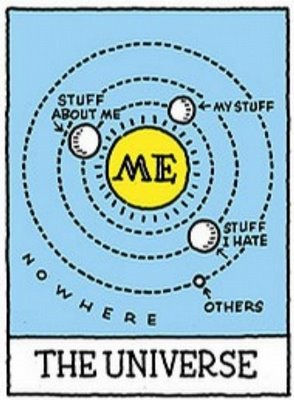Barnum Forer Effect || When You Mistake General For Specific
- Neha Mishra

- Nov 11, 2020
- 4 min read
I randomly came across a man who excused himself into asking for donations. Scam? Maybe. I took out a small sum and while I was signing his card, the guy said,” Ma’am, I have studied astrology and I can tell that you work hard but you don’t get rewarded sufficiently.”

I stopped and looked at him, then completed my signature and handed over the card. I said,” Is not that what every person thinks?”
The one-size-fits-all remark is what he had made. Therefore, the remark was somewhat relatable to me and why wouldn’t it be. It was much like predicting about an Indian, “You like mangoes”.

If I believed his remark was a personalized prediction of my personality I would be blinded with this psychology bias called Barnum or Forer Effect.
When such general statements are accepted as specifically relevant to oneself so as not to apply to everybody else, the person is sadly under Barnum effect and his/her money in danger.

Psychologist Paul Meehl coined the term Barnum effect back in 1956, while Bertram Forer had demonstrated the effect in 1948. Name Forer Effect is explained but who is Barnum? Barnum, perhaps refers to P.T. Barnum, more of a showman than a politician or businessman, as he likes to view himself. He promoted many hoaxes of his time and is popularly remembered for it. Rest behind this nomenclature is a mystery (do contact me if you solve this mystery).

Forer made a clever demonstration of this psychological effect. He took a personality test of 39 students and promised to give them their personalized character sketch. He did give them character sketch, only Forer gave every student the same personality sketch comprising of 13 Barnum statements as these:
1. You have a great need for other people to like and admire you.
2. You have a tendency to be critical of yourself.
3. You have a great deal of unused capacity which you have not turned to your advantage
Can you guess that on a scale of 0 to 5, how much would have students rated the accuracy of their personality result, on average? Go ahead and guess. In my opinion, it could be 3.1 at most.
Ready for the number?

4.3
Don’t be surprised by the naivety of 39 students, because the majority of us are that gullible. Just because you don’t believe in horoscopes and astrology doesn’t mean you are spared of this bias.
Polyanna principle
This principle says that one readily accepts positive comments about self over negative comments. Quite obvious.

“You know you mess up often, but you don’t intend to.”
The kind of sugarcoating that helps you accept critical remarks without criticizing. This approach is often found in personality prediction such as if your favorite color is “orange” you are so and so in behavior and aspirations, you have certain drawbacks but... this “but” is a game-changer. It’s just the Forer effect example combined with Pollyanna principle.
What if the statement is critical of you? It’s not you and the statement is false and shit.

Subjective validation
When we hear a statement we look for proof inside our mind validating the statement. We establish this link between us and the statement ourselves. This is subjective validation, which immensely helps the Barnum effect, because now astrologer only needs to tell you that you are kind and helpful, and your mind will play incidents where you actually helped other people, abandoning the incidents when you didn’t. He gave you a statement and you validated it from a personal point of view.

Validation Seeking & Flattery
In a world full of people seeking validation, flattery is the sweetest weapon to gain attention in the first place. If a stranger tells you s/he has an opinion of you, your stomach will gnaw to know. The curiosity comes from the fact that what they have to tell you is about YOU. There’s no harm in getting one look at it.
Uploaded a picture. Not getting many likes and remarks. Maybe the post is bad. I shall delete it.

Mostly while asking for opinion, one is asking for validation.
Alright, feedback is the mother of valuable input and validation. Validation is the spoilt kid between the two.
So happens in personality tests, people are intrigued not because they don’t know who they are but because they want to know what others perceive of them. Even what a mere test perceives of them. These tests promise to give feedback, while all they get and also look forward to is validation.

What do they get? A general statement. Then in mind, they connect dots and provide subjective validation to it; provided the prediction is positive (Polyanna principle) or the person predicting is of a reputable rank. And if there’s flattery they won’t even think twice before believing.

“They” are us.
**Disappointment**

Overthinking:
Take anything personal and it’ll get you overthinking, maybe even overreacting. Assume you text your crush and don’t get a reply for two days straight. God save the mental drama then.

Oh, even better. “I have something important to talk to you about.”
We don’t take things as normal, general, basic things, we have to take it personally because everything is about us, for us. Who said the world is revolving around Sun, it’s revolving around you. And it’s revolving around me.

We think we are entitled to all good things and good feelings in life. Therefore, we have so much problem accepting problems.
You can pretty much associate by now, how the general things in life can create personalized impact. Barnum effect. Well, even customized emails sent to us bearing our names aren’t customized enough. And why shall we expect it to be? See, how Barnumeffect is used in marketing of products, in this image.

People casting these general statements know what they do, but their eyes are on your pocket. This is why Birbaum said,” self-validation is no validation. Do not be fooled by a psychic, quack psychotherapist, or a phony faith healer who uses this trick on you! Be skeptical and ask for proof. Keep your money in your wallet, your wallet in your pocket, and your hand on your wallet.”





Comments